TrueSport: What Supplements Are Safe to Use?
Have you evaluated your diet, met with a physician, and fine-tuned your training program only to find that you really do need to use a supplement? Now it’s time to decide which supplements might actually work and learn how to pick the lowest-risk product possible. Keep reading!
Through this five-part series on supplements, you will find an overview of the dietary supplement industry so that you can decide if the potential benefits of dietary supplements outweigh the risks. And, if you find you do need to use supplements, how you can better choose a low-risk product.
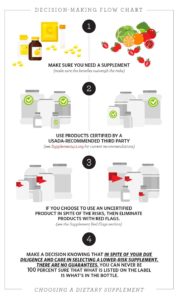
If a dietary supplement is the most realistic way for an athlete to obtain necessary dietary ingredients, how do you pick the safest one?
There is no risk-free way to choose a supplement, as the only way to have zero risk is to not use supplements. But you can reduce the risk significantly by following USADA’s Decision-Making Flow Chart.
If using a dietary supplement is needed, the best way to reduce the risk of using a low-quality or contaminated product is to choose one that is certified by a USADA-recommended third party.
How do I find supplements that actually work?
Alicia Kendig Glass, Sports Dietitian at the United States Olympic & Paralympic Committee, gives her opinion on some trending supplements and what works in the Q&A below.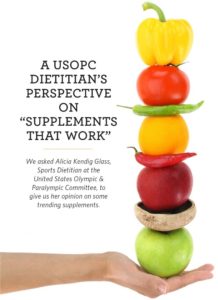
What are your thoughts on the use of supplements for athletes?
When it comes to supplements, I critically evaluate an athlete’s training program, their goals, and their diet. I will not even allow the utterance of the word “supplement” until all those aspects are optimized.
What vitamins and minerals do you recommend?
Most athletes do fine without taking any multivitamins.
I don’t usually recommend any kind of multivitamin, even to elite Olympians and Paralympians. My approach is always food first.
On the other hand, if an athlete has a clinically diagnosed deficiency, then we will treat it.
For example, there are always a handful of athletes diagnosed with sport anemias, and we treat those with an oral iron supplement.
Our approach to supplements is very clinical. We don’t ever dose an athlete with something unless there is a very good rationale for doing so, which means a blood test to confirm their current nutrients status. There are some athletes who we find have hemochromatosis, a genetic condition that makes iron levels too high. We would never suggest iron for those athletes.
I will sometimes recommend vitamin D to an athlete who has a low blood test value. Depending on the time of the year and if they’re training inside or outside, I may recommend a low dose to get them through the winter months when sunlight exposure is limited. But, I warn them that more is not better.
Recently, I had a bobsled athlete that I was treating for low vitamin D. The next time I saw her she complained of tingling in her fingertips. I sent her for a blood test and she had toxic levels of vitamin D. She admitted that she had tripled her dose because her coach told her she should take more. Her symptoms resolved once we got her back on the correct dose.
Things like this can happen to anyone.
In another case, the father of one of our athletic trainers ended up in the ER because of vitamin D toxicity. He didn’t realize it at the time, but all the supplements he was taking for his eyes and skin were adding up to a mega dose of vitamin D, which then exacerbated his symptoms of diabetes. Not only did he not realize vitamin D could be toxic, but he didn’t realize how much he was taking.
This is common when people take more than one supplement. Things end up “stacking.”
Too much vitamin D can also block the absorption of other fat-soluble vitamins.
What about creatine and protein powder?
So many athletes ask me if they should take creatine. For some reason, people just think this is a magic ingredient. I always ask myself, “Are the demands of the sport going to be supported by what this active ingredient does?”
I did have a vegan athlete who was a sprinter and she wasn’t eating the food sources for creatine (meat). She responded well to creatine. But, if I’m working with vegan or vegetarian athletes, I will often start with making sure they are getting enough quality protein in their diet first.
Another situation where protein powders can be helpful is for older athletes who have an increased need for quick recovery and may have a more difficult time maintaining lean muscle mass. In some cases where an athlete must train smarter instead of harder, and they are having a hard time sustaining lean mass, a simple whey protein can help.
What is a nitric oxide booster? Would you recommend it to athletes?
Nitric oxide boosters advertise to increase blood flow to your muscles, therefore increasing your ability to perform and recover faster.
I completely avoid any supplement that advertises to be a nitric oxide (NO) booster. Those supplements
are just too risky for me to even navigate. The ingredients claim to deliver the same results as substances prohibited in sport, so I just don’t trust them.
On the other hand, there are great functional foods that can offer slight improvements in oxygen uptake and muscle efficiency. Beet juice is my favorite!
Caffeine and energy drinks are everywhere these days. What should an athlete do if they’re fighting sluggishness and fatigue?
Caffeine can be a great help for those athletes who can handle it. Some athletes are distracted or jittery on caffeine. It’s not for everyone.

I do not recommend that athletes obtain caffeine through supplements or energy drinks though, because oftentimes, the caffeine dose is listed as part of a ‘proprietary blend,’ which doesn’t list the individual doses. This makes it difficult to be certain about how much caffeine is actually consumed.
Energy drinks are particularly bad because they can also contain hidden sources of caffeine or other stimulants like yohmbine. The cumulative effect of multiple stimulants can harm performance and health.
We know that supplement labels can be inaccurate, so if an athlete doesn’t like coffee (which can also be hard to dose), we will recommend a No Doz or other over-the-counter product with a known amount of caffeine.
What is carnitine? Can it help an athlete?
I have had athletes ask me about carnitine, but I don’t recommend it. Some athletes want to take carnitine because they think it will make the body burn more fat.
The research that I’ve reviewed is not convincing and more evidence is needed to suggest that carnitine does indeed work for an elite athlete population – that principle applies for any dietary supplement ingredient. The evidence needs to be specific and beneficial to an elite athlete population, specific to an athlete’s sport or discipline.
Can you tell us more about beta-alanine?
When dosed properly, beta-alanine increases carnosine in the muscle, which then acts as a lactate buffer.
For athletes whose efforts last 40 seconds to about four minutes, it can help delay anabolic metabolism, which is when your muscle has too much lactic acid built up to function optimally.
Beta-alanine is no magic pill – it just delays this threshold slightly. But, it can be beneficial in training.
Beta-alanine is found in meats, but at very low levels, so you’d have to eat a lot of it. For it to work, it requires a loading phase of 3-4 weeks at high dose and then you back off. If you get a high-quality product, it’s very expensive.
I had a high jumper once who just wanted to take anything and everything, and he thought “more is better.” I asked him, “How is this going to help you? You are not even doing a lactate-accumulating sport!” For the high jumper, I recommended that he not waste his time or money on beta-alanine.
Do you think athletes can benefit from taking probiotics?
I’m a big fan of probiotics. There are many good food sources like yogurt, kefir, ceviche, and other fermented foods.
I will sometimes recommend a probiotic supplement for athletes traveling internationally because finding trusted food sources overseas can be difficult.
There is still a lot of research to be done. We are not in a place where we can pull out a menu of recommendations for probiotics. We still have a lot to learn about all the different strains, how high of a dose is required, and how long dosing of probiotics is necessary for various benefits.
Research is suggesting that improved gut health has very wide health effects on the whole body, both mentally and physically.
What is tart cherry? What can it do for athletes?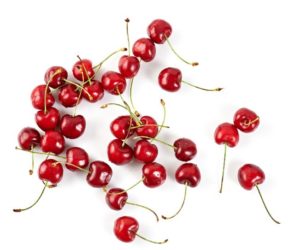
I’ve been asked a lot recently about vitamin C mega-dosing and the use of functional foods like tart cherry to reduce the stress on the body from heavy training.
Although there is evidence that tart cherry juice has benefits to fight inflammation for elite athletes, I often need to remind athletes who choose to consume tart cherry juice after workouts, that tart cherry juice should not take the place of other recovery snacks that contain both carbohydrates and protein. There is no protein in tart cherry juice.
One thing athletes need to realize is that if they do want high doses of vitamin C, it’s better to get it through foods. The water-soluble vitamins are highly unstable, and more importantly, mega-doses of antioxidants in dietary supplement form can actually stunt training responses. If they take it in a capsule or tablet, much of it could already be degraded.
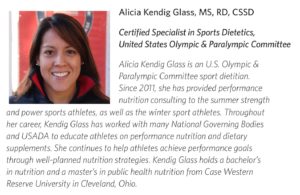
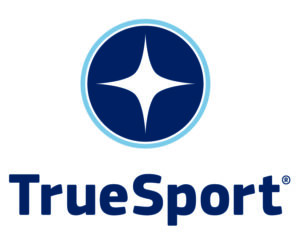
About TrueSport
TrueSport®, a movement powered by the experience and values of the U.S. Anti-Doping Agency, champions the positive values and life lessons learned through youth sport. TrueSport inspires athletes, coaches, parents, and administrators to change the culture of youth sport through active engagement and thoughtful curriculum based on cornerstone lessons of sportsmanship, character-building, and clean and healthy performance, while also creating leaders across communities through sport.
For more expert-driven articles and materials, visit TrueSport’s comprehensive LEARN resource.
This content was reproduced in partnership with TrueSport. Any content copied or reproduced without TrueSport and the U.S. Anti-Doping Agency’s express written permission would be in violation of our copyright, and subject to legal recourse. To learn more or request permission to reproduce content, click here.


